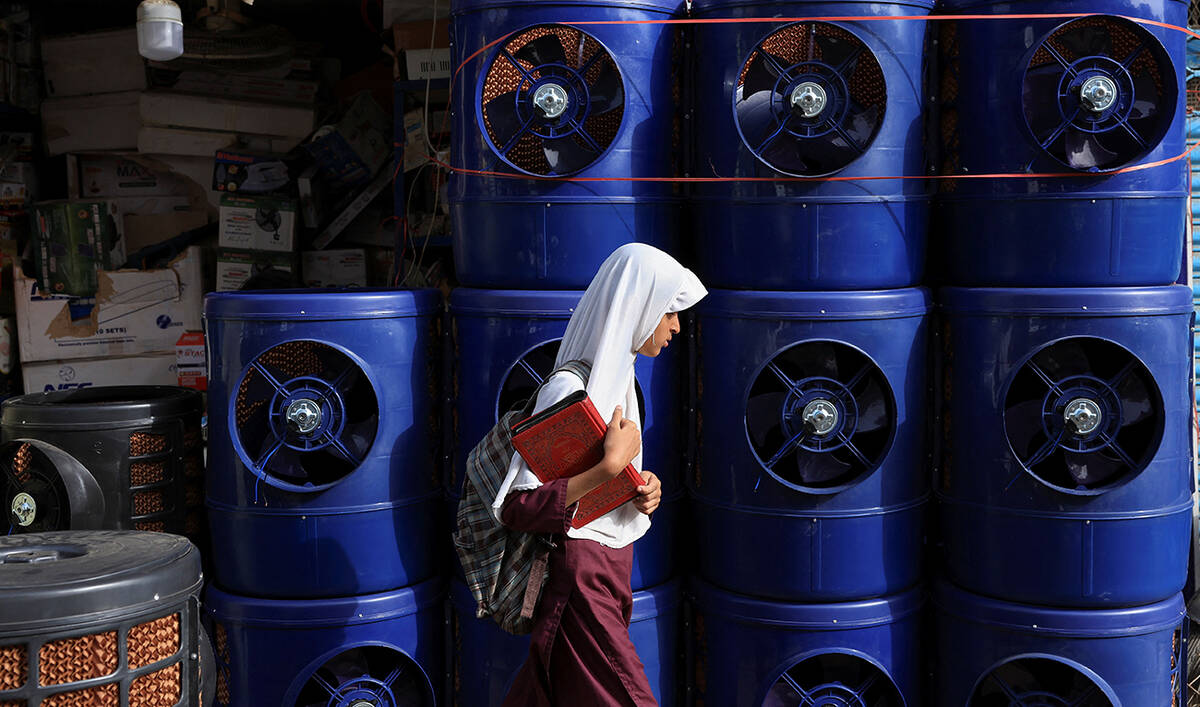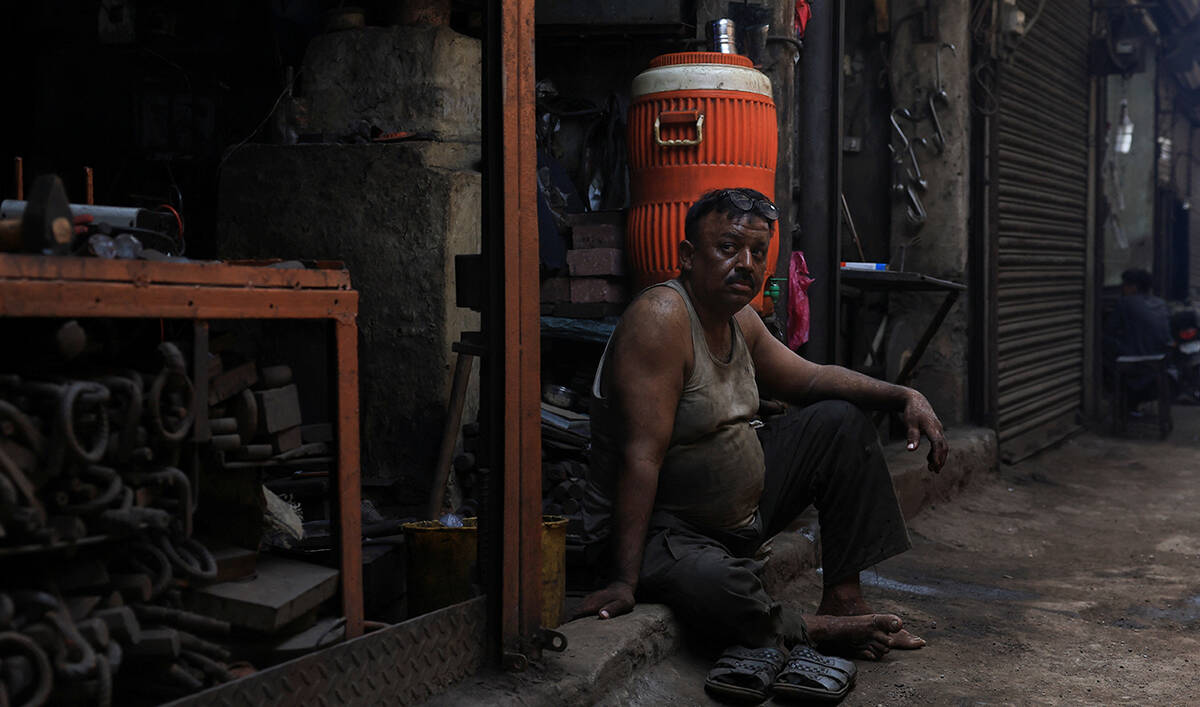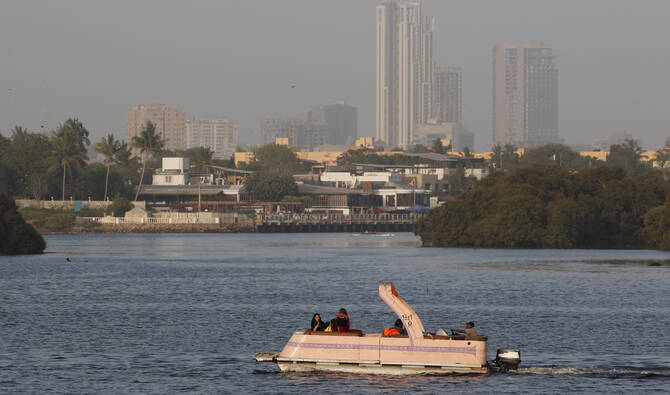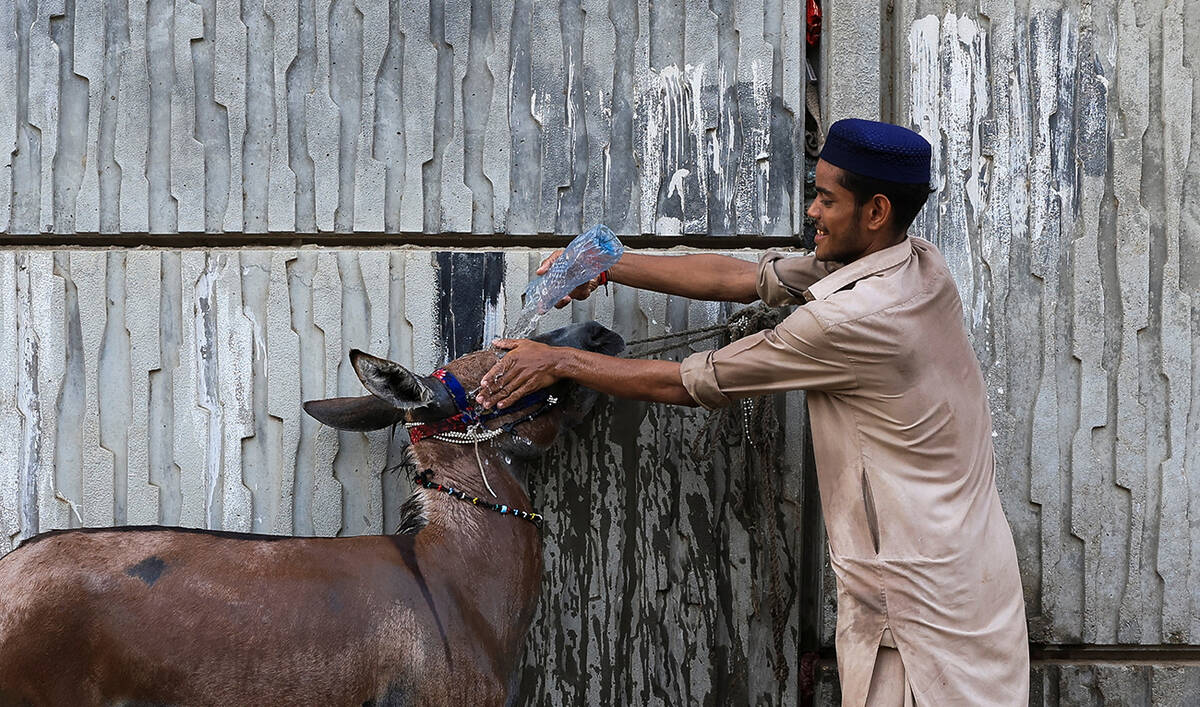ISLAMABAD: Pakistan’s star athlete Arshad Nadeem made history on Thursday by bagging an Olympic gold medal in Paris at the men’s javelin throw competition, sending the light spear two times over the 90-meter mark to hand Pakistan its first Olympic medal since 1992.
Nadeem’s first throw was disqualified but it was his second one that sent the javelin at a massive distance of 92.97 meters and made him the first Pakistani athlete to bag a medal in track and field.
India’s Neeraj Chopra, the defending Olympic champion, threw the second-best throw at 89.45 meters to claim silver while Grenadian Anderson Peters claimed bronze with an 88.54-meter throw.
“Bravo Arshad, history made!” Prime Minister Shehbaz Sharif wrote on social media platform X. “You’ve made the whole nation proud young man.”
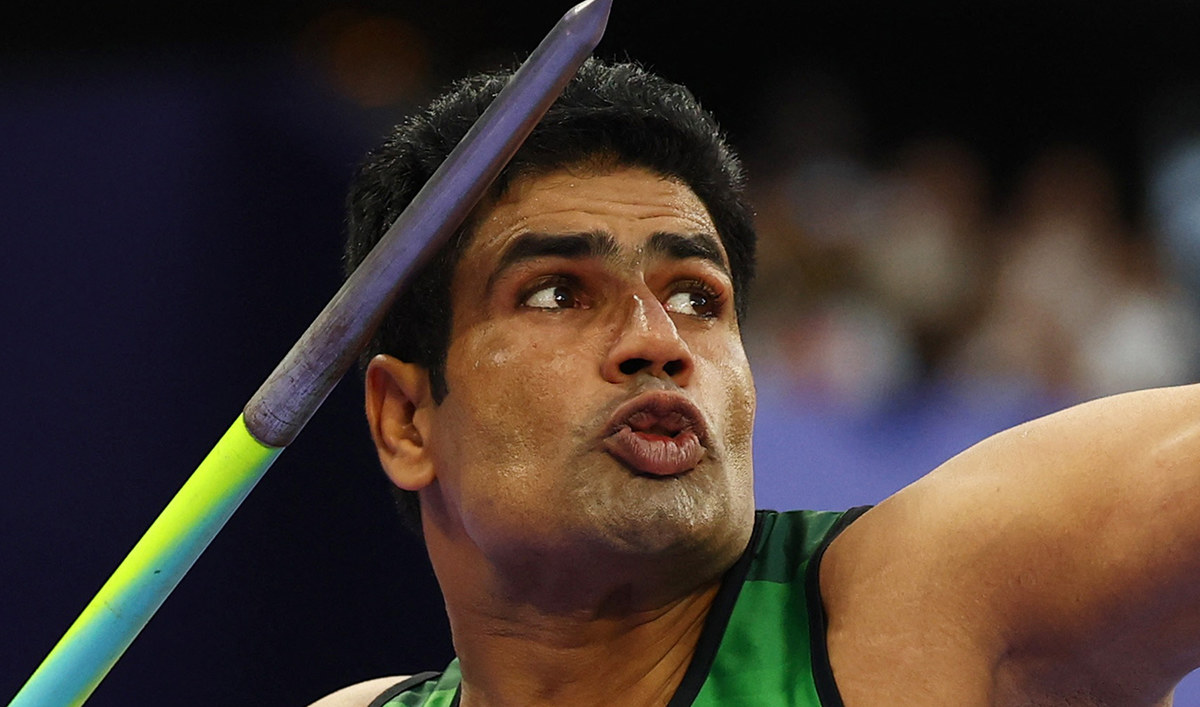
Arshad Nadeem, of Pakistan, competes during the men's javelin throw final at the 2024 Summer Olympics in Saint-Denis in France on August 8, 2024. (AP)
In a separate statement, Pakistan’s military services chiefs and chairman joint chiefs of staff committee congratulated Nadeem on the historic feat.
“This remarkable achievement is a testament to Arshad Nadeem’s unwavering dedication, unrelenting perseverance, and exemplary hard work, serving as a beacon of inspiration for the entire nation,” Pakistan army’s media wing said.
“His triumph is a resounding affirmation of Pakistani talent and determination, showcasing the country’s potential to excel on the global stage.”
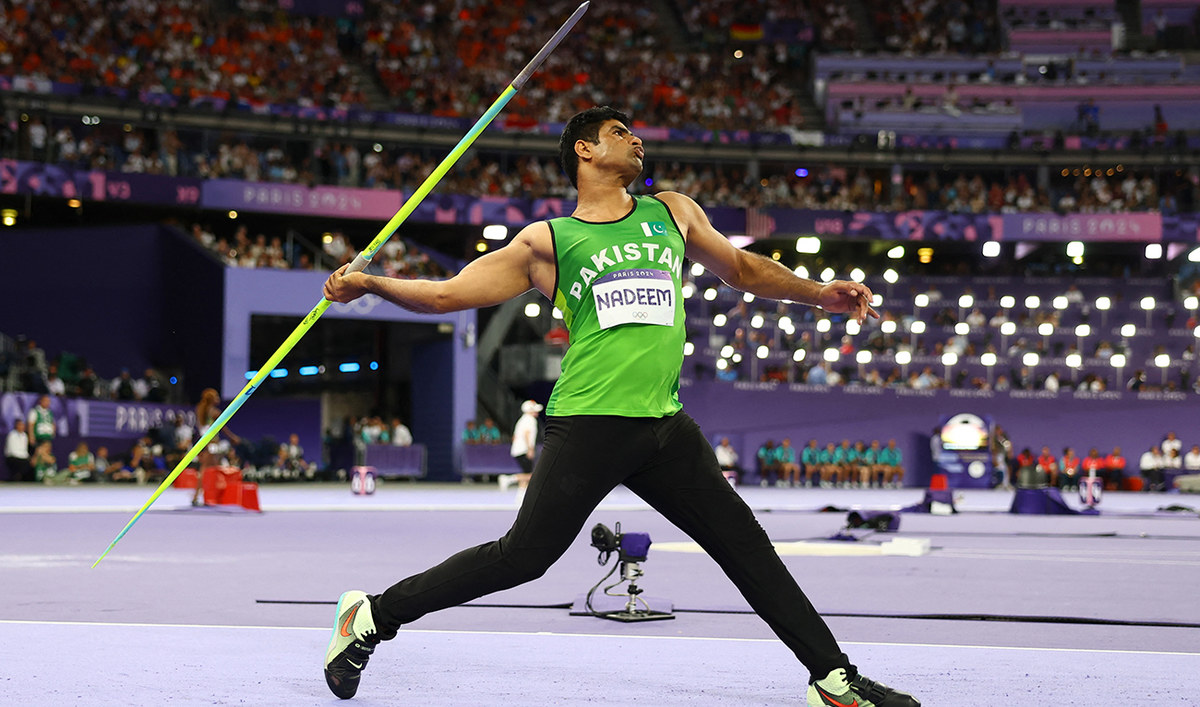
Arshad Nadeem, of Pakistan, competes during the men's javelin throw final at the 2024 Summer Olympics in Saint-Denis in France on August 8, 2024. (AP)
Speaking to reporters, Nadeem’s emotional mother said her son had made the entire country proud.
“He has made Pakistan proud and has held the country’s head high,” she said.
Karachi Mayor Murtaza Wahab congratulated Nadeem, announcing a Rs5,00,00,000 [$179,404] cash award for the athlete.
“I announce a sports academy in Karachi in honor of Arshad Nadeem,” Wahab said. “Arshad Nadeem is our nation’s hero and we are proud of our heroes.”
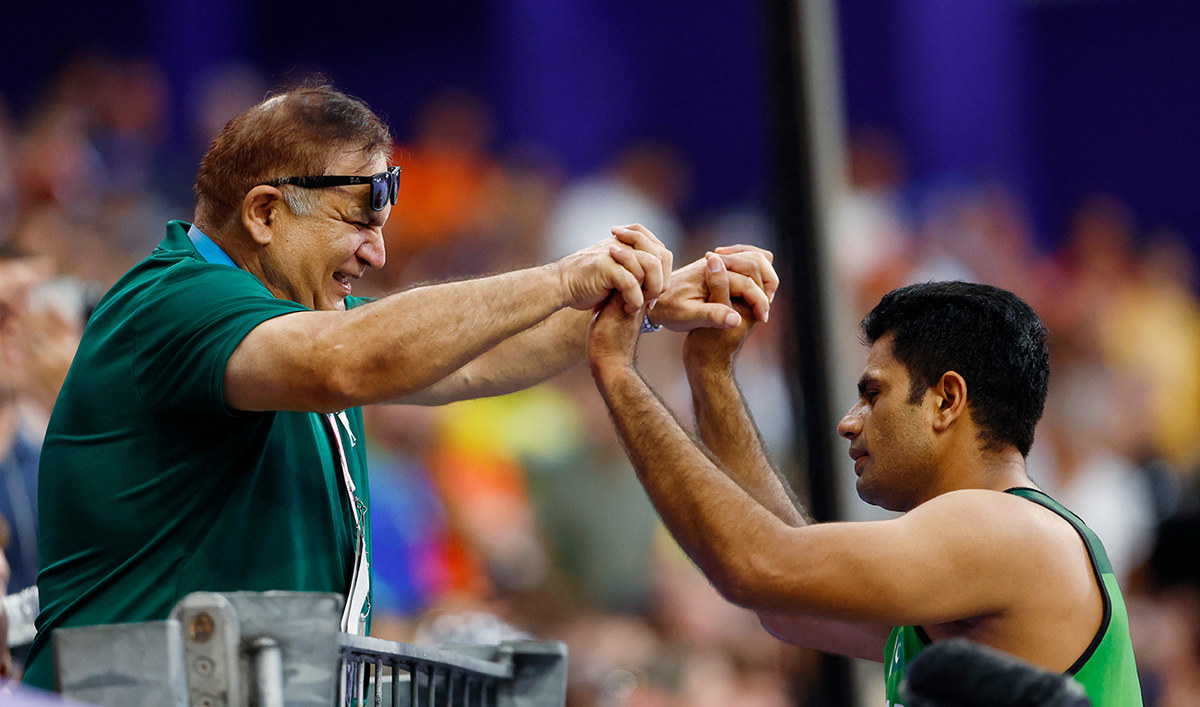
Arshad Nadeem of Pakistan celebrates winning gold and setting a new Olympic record during Men's Javelin Throw Final at the Stade de France in Paris on August 8, 2024. (REUTERS)
PAKISTAN AT THE OLYMPICS
Pakistan has won only 10 medals since the 1948 edition, with only two medals won by individual athletes. After gaining independence in 1947, the South Asian country won its first medal in 1956 in Melbourne when it won silver in field hockey, Pakistan’s national sport.
Pakistan bagged gold in hockey in 1960 in Rome and bagged a bronze in the same competition when Mohammad Bashir clinched the medal in the men’s 73kg wrestling category.
From 1964 to 1984, Pakistan bagged two gold, two silver and one bronze medals, all in field hockey. Pakistan’s Hussain Shah bagged bronze in the men’s middleweight category in Seoul Olympics in 1988.
The South Asian country won its last medal in 1992 in Barcelona, when the field hockey team bagged bronze.
Nadeem is a 10-time international medalist and five-time gold medalist who came fifth at the 2020 Tokyo Olympics.
The Pakistani star athlete won silver at the World Championships last year and gold at the Commonwealth Games in 2022 with a massive 90.18-meter distance throw.
Nadeem, who comes from humble beginnings from Khanewal in Pakistan, is one of nine children of a daily wage laborer who showed great versatility as an athlete from a young age while dabbling in all kinds of sports at school.
Though the family lacked the financial means to encourage Nadeem’s enthusiasm for sports, his spirit earned him the support he needed, with his elder brothers working to help him build a career in sports, the family told Arab News in an interview in 2021.






